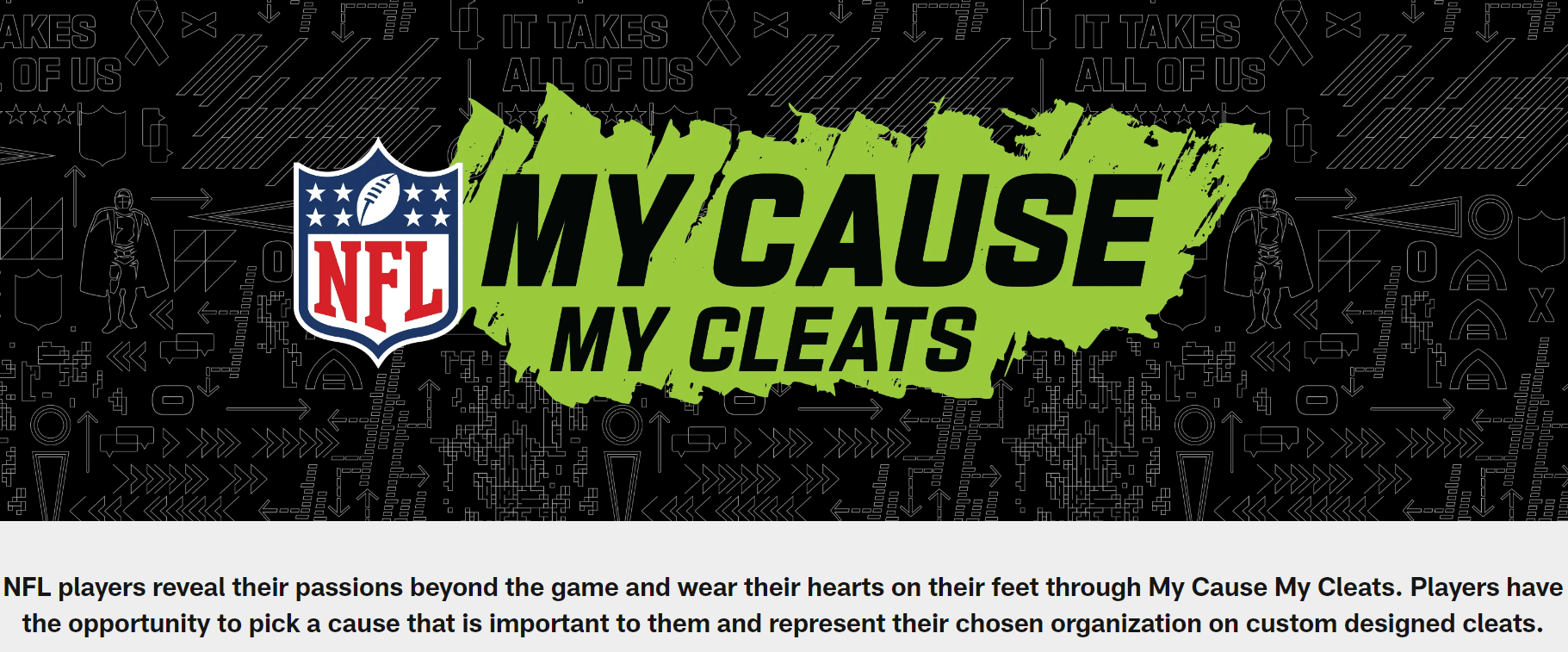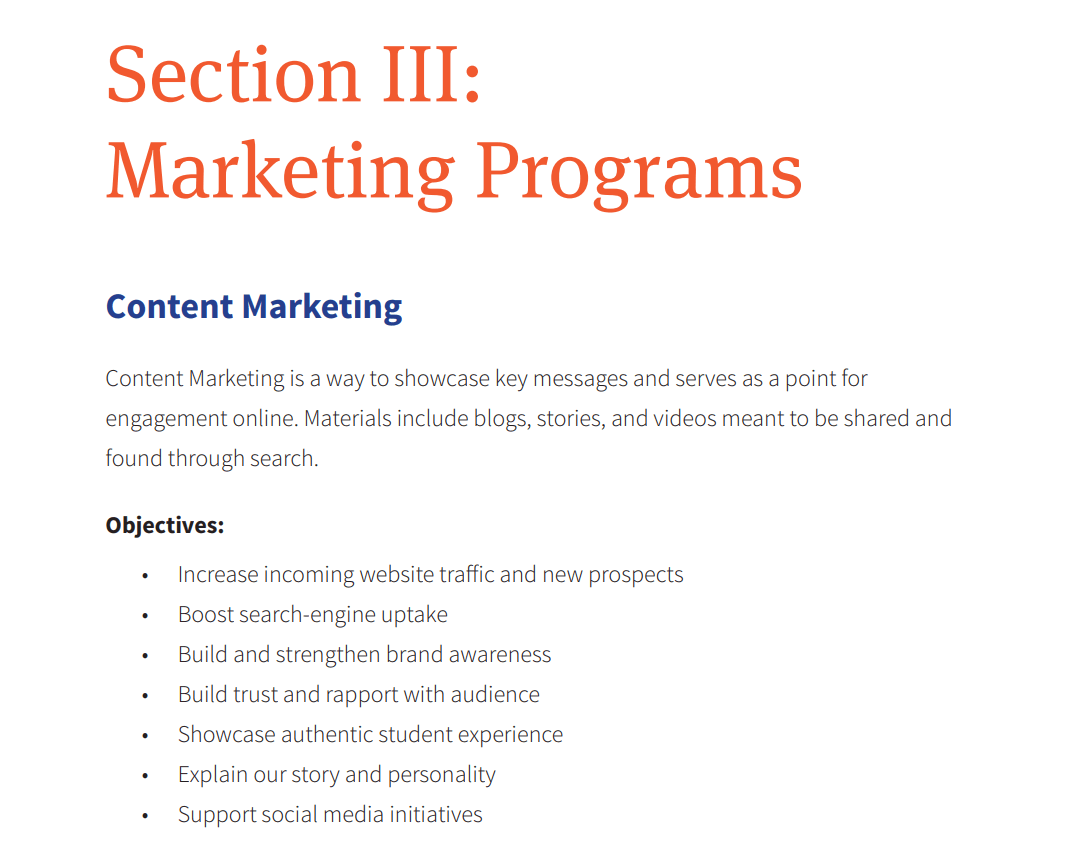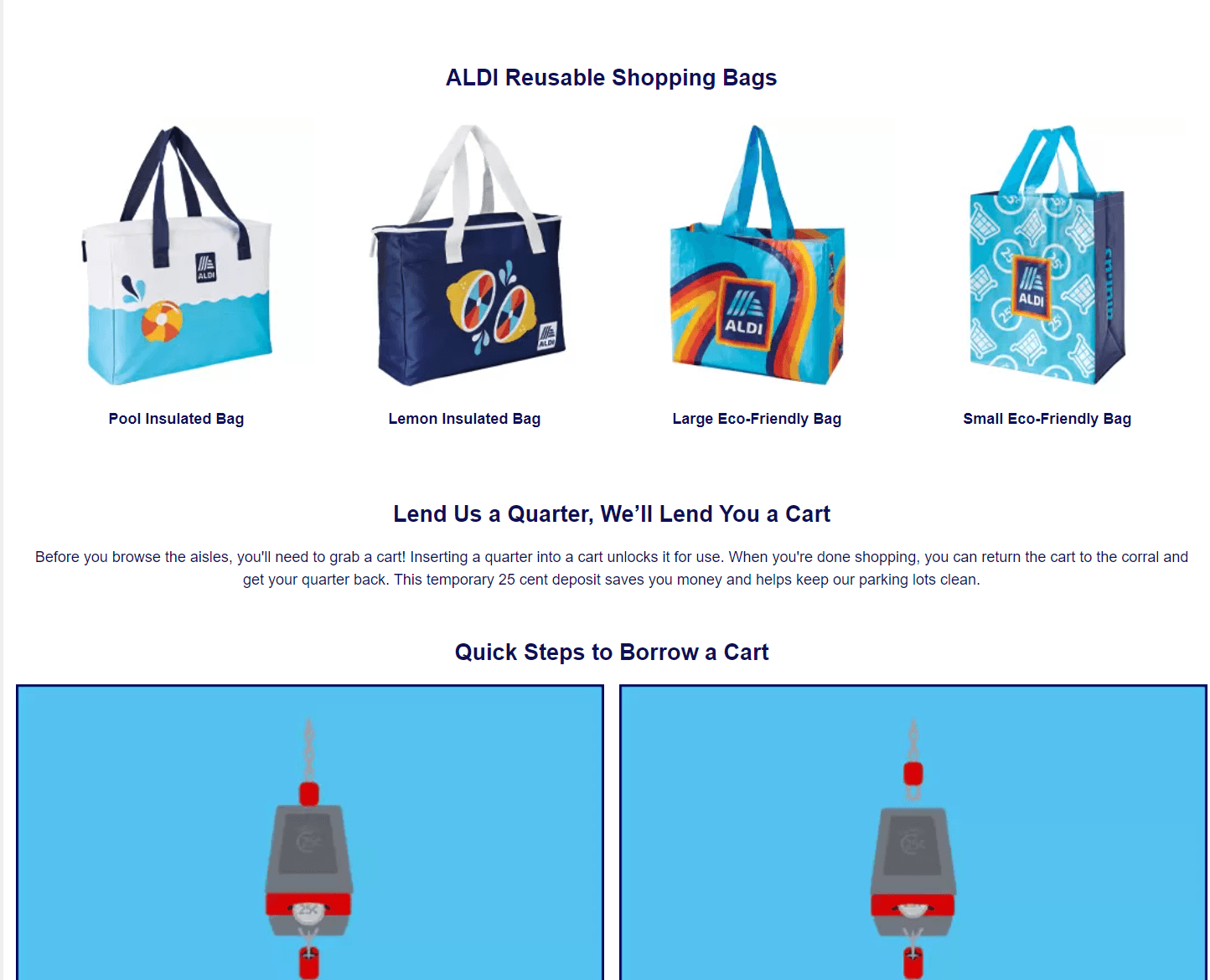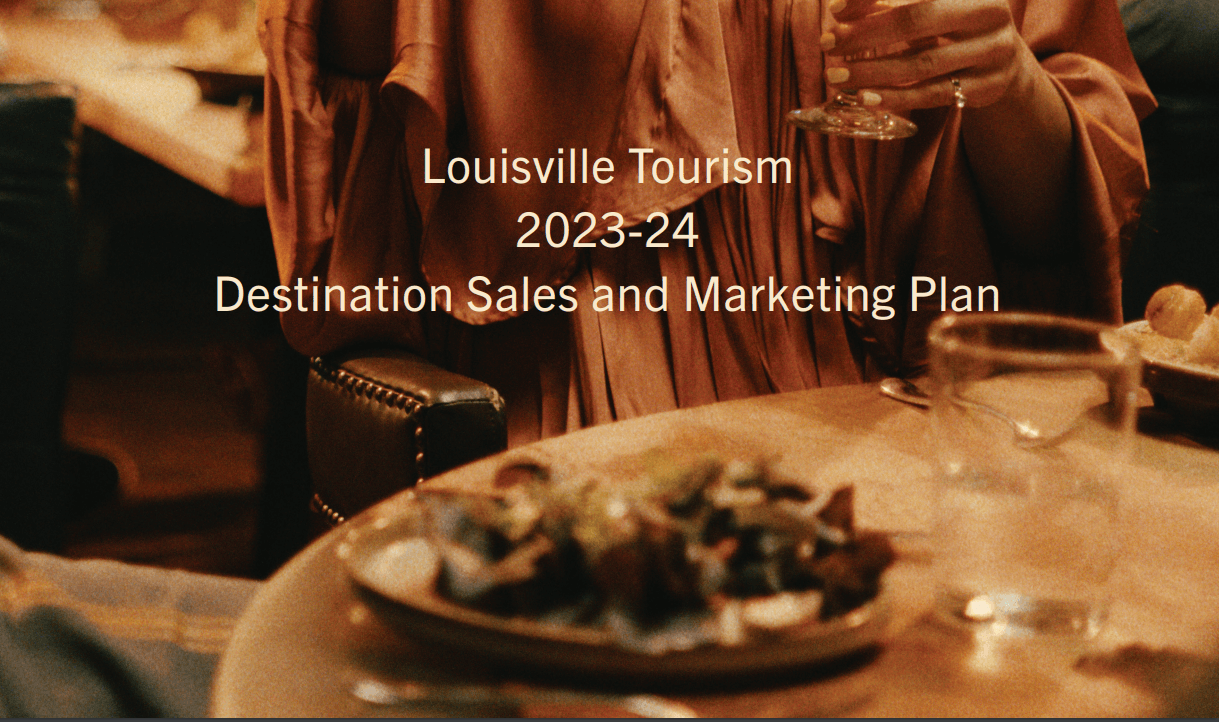-
 Published: Jul 9, 2024
Published: Jul 9, 2024
-
 8 min. read
8 min. read
-
Summarize in ChatGPT
-
 Sarah Berry
Sarah Berry Lead Web Marketing Consultant
Lead Web Marketing Consultant
- Sarah Berry is a Lead Web Marketing Consultant at one of the largest digital marketing agencies in the USA — WebFX. With more than 10,000 hours of experience, she offers practical insights and strategies to grow your digital revenue. Her work has been cited by Michigan State University, Business Insider, and Ars Technica. When she isn’t polishing her Time Magazine Person of the Year Award, she’s spending time with her flock of ducks.
Joan has a problem. Her company doesn’t have a plan. No, it’s not a business plan — it’s a marketing plan.
The worst part? Joan doesn’t even know where to start.
Luckily for Joan (and you), we’ve got you covered. On this page, we’ll lay out how to create a strategic marketing plan and show you marketing plan examples to help you see how your marketing plan should look.
Plus, we have a free downloadable marketing plan template you can use to get started!
Download Now: Free Marketing Strategy Planner Template
Keep reading to find out how you can start planning your marketing.
What is a marketing plan?
A marketing plan outlines a company’s online and offline marketing strategies they will use to promote their company. Businesses use marketing plans to support the organization’s overall strategy, objectives, and values, as well as summarize, organize, and execute their marketing efforts.
What do you need in a marketing strategy plan?
There are a few key components you need to have a successful marketing plan:
-
- Executive summary: This section provides a recap of your plan. It outlines your goals, action items for achieving goals, and marketing budget. This should be a section that’s short and to the point.
- Current situation: A current situation assessment helps you see where competitors are and what changes you need to prepare for to succeed. It looks at your market, environment, competition, and more to help you understand your position in the market.
- SWOT analysis: Your SWOT analysis looks at your strengths, weaknesses, opportunities, and threats. It helps you understand what’s happening in your market and how you can prepare your business to succeed against competitors.
- Objectives and issues: This section will document information like the duration of your marketing strategy, your goals, and issues that could impact you achieving your goals.
- Marketing strategy: This part covers your brand’s positioning, value proposition, strategy, pricing, distribution, communication, and research. Basically, it breaks down how you’ll approach your marketing.
- Action programs: At this step, you’ll outline the action items for marketing your business online. This means laying out the tactics you’ll use for each marketing strategy — in short, it’s how you’ll approach your marketing tactics.
- Marketing budget: As this step’s name hints, this is where you’ll lay out your marketing budget, which consists of anticipated investment amount, expected revenue generation, and predicted costs for things like tools.
- Metrics: Tracking your marketing is important for success. The final step of your marketing plan involves documenting the metrics you’ll track for success. These may vary depending upon the strategies you use.
5 marketing plan examples to help you get started
If you’re new to creating a marketing plan, looking at a marketing plan example can help you get inspired.
Let’s look at some marketing plan examples to help you visualize how your plan should look:
1. Lush
To kick off this list of examples of marketing plans, let’s take a look at Lush. Lush is a cosmetics company known for their eco-friendly products that focus on ethically resourced ingredients and no animal testing.

Lush’s marketing strategy plan covers tons of great information, like:
- An overview of the cosmetics market and how they compare to competitors
- A summary of their mission and values
- A detailed analysis of their market and who they’re targeting
- An overview of their marketing strategies
2. NFL
The NFL is home to one of the most popular sports to watch on TV. As a globally-known brand, they created a marketing plan that helps them obtain more viewers, create a recognizable brand, and establish their dominance in the sports industry.
The NFL marketing strategy includes numerous important aspects, such as:
- Established brand guidelines for how to promote the NFL through different media
- Planning and implementation of strategies like digital advertising, influencer marketing, and brand partnerships
- Strategic development of brand values, which is showcased through community outreach programs (My Cause, My Cleats, Salute to Service, etc.)

3. University of Illinois
Want to see some more marketing plan examples? Check out this marketing plan from University of Illinois. Their strategic plan provides all the context and information needed to help market their institution to future students.

Here’s what they do well:
- Established target market with recruitment strategies in place
- Breakdown of different marketing strategies they’re using and how they’re implementing them
- Overview of success metrics to track with each marketing strategy
4. Aldi
Aldi has a long-established reputation of being an affordable grocery store that offers high-quality products for shoppers. From Aldi-finds to their use-a-quarter grocery cart system, Aldi markets themselves as a unique player in the grocery story industry.
Here’s why Aldi is a great marketing plan example to take inspiration from:
- They focus on promoting their company values, like sustainability and efficiency, through their marketing

- They have an established target market (value-conscious, budget shoppers) and market products and company accordingly
- They have established marketing strategies, like social media, and use those strategies to connect with shoppers
5. Louisville Tourism
Tourism is a huge market, and that requires strategic marketing and planning to get people to visit a destination. Louisville Tourism created their strategic marketing plan to help get more visitors to their state.

This marketing plan example is a great one to look at because:
- It provides a general market overview, including target, seed, and niche markets
- It details what marketing strategies to use and how to use them to recruit tourists
- It provides a breakdown of company goals and metrics to measure to see if those goals are achieved
FAQ on marketing plan development
Have some lingering questions after looking at the above marketing plan examples? We’ve got answers!
How is a marketing plan different from a marketing strategy?
A marketing plan focuses on all the strategies used to accomplish goals. A marketing strategy is a single tactic companies use to complete a mission or goal.
How is a marketing plan different from a business plan?
While both are strategic plans, the biggest difference is what they focus on. A business plan covers all business operations, from manufacturing to R&D. A marketing plan, however, is limited to the scope of marketing.
What do I need to know when making a marketing plan?
As you develop your marketing plan, consider these questions:
- Who am I targeting?
- How does my product or service solve their problem?
- Who are my competitors?
- What is my plan to reach and engage my target audience?
- How much can I spend on marketing?
- How will I determine the success of my campaigns?
Answering these questions will help you frame out your marketing plan.
Do I need a marketing plan?
In short, yes.
A strategic marketing plan keeps your business organized. It ensures that anyone who works on your marketing knows what you want to achieve, who you’re targeting, and other important information.
A marketing plan ensures you deliver cohesive campaigns that align with your company values, too. Basically, creating a marketing plan ensures consistency across the board, no matter who works on your campaigns.
Additionally, your marketing plan helps you develop more effective strategies. Conducting a SWOT analysis, for example, helps guide you on what strategies will help you counteract threats and take advantage of opportunities.
So, if you want to maximize the effectiveness of your marketing, you need a marketing plan.
Get help executing your strategic marketing plan
If these examples of strategic marketing plans have you inspired, it’s time to take action and start developing your marketing plan! Need help figuring out the right strategies for your business, or executing them? With over 30 years of experience in digital marketing, our team at WebFX can help.
As a full-service digital marketing agency, we offer all the services you need to promote your business. We’ll develop a custom plan, just for you, so your business gets what it needs to market effectively online and drive more revenue.
If you’re ready to start your journey to ramping up revenue, contact us online or call us today at 888-601-5359 to speak with a strategist about our digital marketing services!
-
 Sarah Berry is a Lead Web Marketing Consultant at one of the largest digital marketing agencies in the USA — WebFX. With more than 10,000 hours of experience, she offers practical insights and strategies to grow your digital revenue. Her work has been cited by Michigan State University, Business Insider, and Ars Technica. When she isn’t polishing her Time Magazine Person of the Year Award, she’s spending time with her flock of ducks.
Sarah Berry is a Lead Web Marketing Consultant at one of the largest digital marketing agencies in the USA — WebFX. With more than 10,000 hours of experience, she offers practical insights and strategies to grow your digital revenue. Her work has been cited by Michigan State University, Business Insider, and Ars Technica. When she isn’t polishing her Time Magazine Person of the Year Award, she’s spending time with her flock of ducks. -

WebFX is a full-service marketing agency with 1,100+ client reviews and a 4.9-star rating on Clutch! Find out how our expert team and revenue-accelerating tech can drive results for you! Learn more
Try our free Marketing Calculator
Craft a tailored online marketing strategy! Utilize our free Internet marketing calculator for a custom plan based on your location, reach, timeframe, and budget.
Plan Your Marketing Budget

Proven Marketing Strategies

Proven Marketing Strategies
Try our free Marketing Calculator
Craft a tailored online marketing strategy! Utilize our free Internet marketing calculator for a custom plan based on your location, reach, timeframe, and budget.
Plan Your Marketing Budget
What to read next





